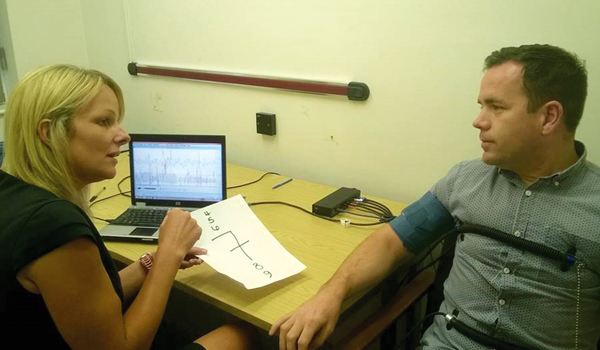Truth tests
As polygraph use spreads throughout forces in England, Police Professional looks at how the force that introduced it is making best use of the technology.
As polygraph use spreads throughout forces in England, Police Professional looks at how the force that introduced it is making best use of the technology. In September last year, 33-year-old Hertfordshire man Alan Connolly was arrested for downloading indecent images of children from the internet and given conditional bail pending further inquiries. He was given the opportunity to take a voluntary polygraph test as part of his risk-assessment. Connolly arrived at the dedicated testing suite at Royston police station two days after his arrest. Research indicates that more than half of those who download indecent images of children have also had hands-on contact with minors, so identifying those in this higher risk category is a priority and the polygraph is proving to be a hugely valuable tool. Suspects taking a polygraph test are not questioned about the offence for which they have been arrested. Rather, the test is an attempt to assess the likelihood that they have also been involved in contact offences or other related crimes. During the test, Connolly was questioned on whether he had had hands-on contact with anyone under the age of 16 and whether he had communicated with anyone under the age of 16 for a sexual purpose. Although he denied this, the polygraph results indicated that he was not being truthful. Confronted with the results soon after the test, he soon made a series of alarming disclosures concerning a boy under the age of 13. The polygraph team reported this back to the officer in the case and Connolly was subsequently arrested on new charges. He went on to admit further offences against children, and was sentenced to six years in prison. Had it not been for the polygraph, it is unlikely this abuse would have ever come to light. Detective Sergeant Michael Birch, who was the senior investigating officer, explained: Connolly is a dangerous individual and a risk to children. This case is a perfect example of how valuable polygraphs can be in securing disclosures from suspects. Although it is not evidential, it greatly assists in assessing the risk factor of suspects to vulnerable children. Hertfordshire Constabulary was one of the first forces to introduce polygraph testing into its risk-assessment programme It has two full-time officers, Detective Constables Tim Benson and Dani Pruett, trained to use the device. Between them, they have carried out more than 260 tests, both pre and post-conviction, since 2014 and have no doubt that it delivers results. Scientific studies have demonstrated that it can spot deceit around nine times out of ten: If you ask a member of the public whether someone is telling the truth or not, they are about 50 per cent accurate the same that you get from chance. If you ask the same question of detectives the score is a bit higher, about 55 to 60 per cent at best. So you can see that at 90 per cent, a polygraph is invaluable, said Det Con Benson. Although the device is more commonly referred to as a lie detector, the two officers refrain from using the term themselves. Its a bit misleading. Using the polygraph the way we do, its just as much about seeing if people are telling us the truth. We want them to be telling us the truth. We want to assess their credibility. Theres no flashing light that goes off if someone is telling a lie, said Det Con Benson. Hertfordshire Constabulary manages 977 sex offenders of whom 723 live in the community. Those receiving cautions in connection with minor offences are subject to notification requirements of the Sex Offenders Act (Sex Offenders Register) for two years and, during that time, the police are responsible for their management and have to make risk-assessment decisions. More serious offences lead to prison sentences and a lifetime notification requirement. In such cases the police and Probation Service are jointly responsible for the management of the individual until their licence period expires, at which time all the responsibility falls to the police. After 15 ye


